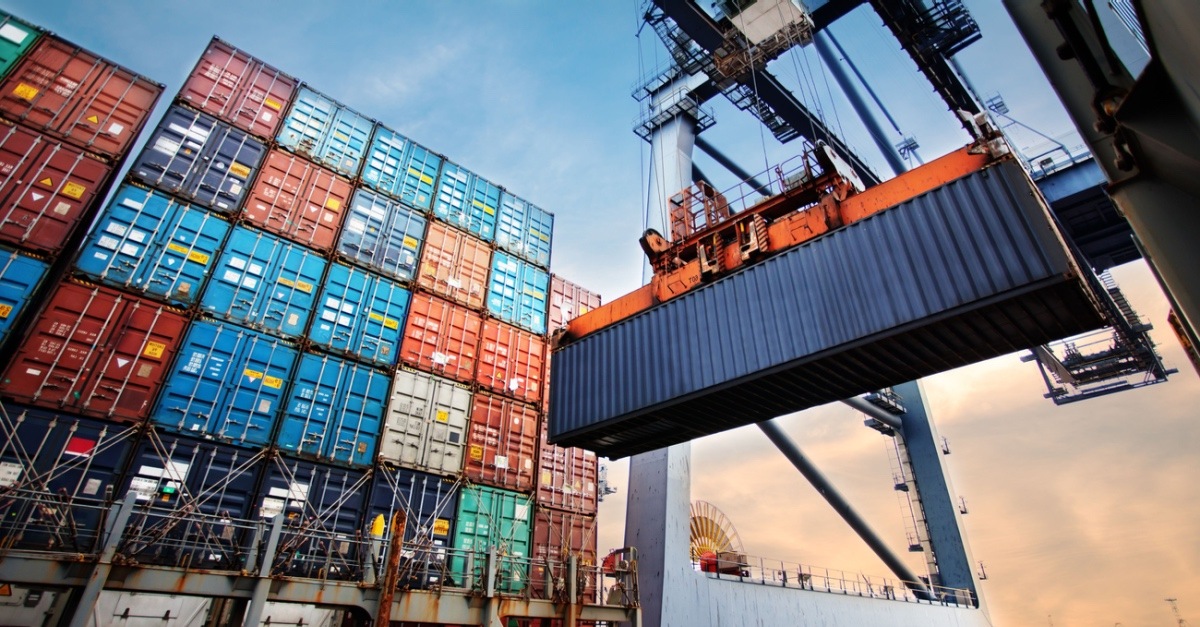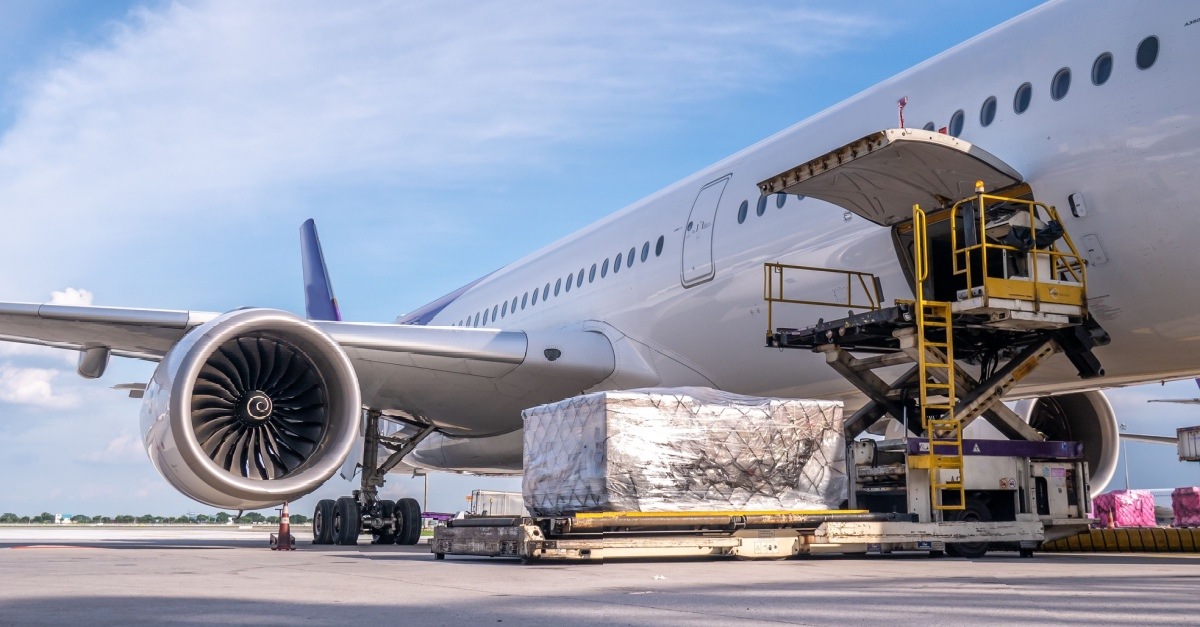3 min read
Logistics and Supply Chain: Economic Indicators Up; Sector Still Feeling Pain
One month into 2024, headlines are noting challenges in the sector, including layoffs and lower results from bellwether firms. However, the broader...
With Houthi rebels continuing their terrorist campaign against ocean cargo ships transiting the Red Sea – most recently targeting two vessels on June 7 – air freight demand is on the rise and is expected to see double-digit growth in 2024. On a positive note, another supply chain disruption has come to an end with the full reopening of the Port of Baltimore shipping channel following the March bridge disaster.
In other news, U.S. Customs and Border Protection (CBP) is cracking down on alleged illegal imports of goods from China, an effort that has led to the revocation of Section 321 and Entry Type 86 import privileges from some freight brokers. Here’s more on what’s happening in the world of logistics and supply chain in June.
Demand for air freight rose 9% in May, and April saw the first year-over-year increase in spot rates since August 2022, according to a monthly market report from DHL Global Forwarding. Drivers of the strong growth are e-commerce exports from China and the ongoing instability in the Middle East affecting ocean freight.
Global air cargo capacity was up 11% in May compared to the prior year, DHL reported, outpacing the growth in demand, with nearly all the growth coming from increased capacity in passenger flights. While air freight capacity is expected to remain stable for now, certain lanes are tight, including routes from Asia to the U.S., Europe, the Middle East, and Africa.
Freight rate analytics platform Xeneta saw an even rosier picture, with a 12% bump in air cargo demand in May, and projections of double-digit growth for 2024, compared to industry forecasts in the low-single-digit range at the end of 2023.
Domestic parcel delivery metrics saw performance improvement in 2023, according to a report from parcel tracking firm Parcel Monitor. This included a 3.6% decrease in the delivery error rate to 6.4%; an average on-time rate that held steady at 98%; a first-attempt delivery success rate that improved by 12.2% to 97%; and an average domestic transit time that decreased by 24% to 2.56 days.
The trend of faster transit times continued into Q1, Parcel Monitor noted, with the average transit time falling again to 2.32 days. Among the major parcel carriers, FedEx and UPS both improved average transit times, to 2.08 days and 2.22 days, respectively. The U.S. Postal Service saw its average dip to 2.55 days.
With the main channel of the Port of Baltimore reopening, officials there are looking for the return of traffic that was diverted to other ports after the March collapse of the Francis Scott Key Bridge when the cargo ship Dali struck one of its moorings.
The Dali was refloated on May 20, and teams worked feverishly to clear the last of the major bridge debris that had kept the main federal channel closed. Five major ocean carriers – Maersk, MSC, Hapag-Lloyd, ONE, and OOCL — have restarted full operations at the Port of Baltimore, or signaled it through bookings, according to Supply Chain Dive.
The reopening of a lesser channel in April saw traffic resume at the Port of Baltimore. Before that, volume was diverted to ports in New York and Norfolk, Virginia, officials from Geodis told Supply Chain Dive.
U.S. Customs and Border Protection (CBP) has cracked down on imports from China, shutting out a number of freight brokers as part of stepped-up enforcement aimed at keeping out shipments of contraband items. Major Chinese e-commerce firms Shein and Temu are reportedly under the CBP microscope as it scrutinizes shipments allowed under two expedited import programs, Section 321 and Entry Type 86.
In 2016, the U.S. raised the de minimis threshold from $200 to $800, meaning goods valued below that level could be imported without a formal customs declaration, avoiding import duties and taxes. U.S. companies have complained for years that the lax de minimis rule tilts the playing field in favor of Chinese importers dumping tons of inexpensive goods into our market without penalty.
One of those brokers, major freight forwarder and 3PL Seko Logistics, had faced suspension from the Type 86 program as of May 30. It was conditionally reinstated after the company filed a lawsuit against the CBP’s action. The agency has been using digital technology to screen and seize packages with illegal contents coming in under the expedited programs, according to The Loadstar. The publication further noted that Shein, a Seko customer, was a particular target of scrutiny.
Legislators in New York on June 8 passed a bill that would require Amazon and other major warehouse operators to make their facilities safer for workers, a measure supported by the Teamsters. The labor union is part of a coalition called New Yorkers for a Fair Economy that is urging New York Gov. Kathy Hochul to sign the bill into law.
“The Warehouse Worker Injury Reduction Act makes New York a national leader in taking on the Amazon injury crisis,” said Thomas Quackenbush, president of Teamsters Joint Council 18, in a news release. “Workers are suffering preventable injuries because employers like Amazon are putting their profits ahead of safety. This legislation will force companies to change their warehouse design and practices to prioritize workers.”
With instability continuing to affect supply chains and transportation, including rising air freight volumes and rates, shippers must be extra diligent to wring as much cost out of their operations as possible. They also need to seek out and work with logistics partners they can trust in a time when foreign imports are facing increased scrutiny from regulatory agencies.
Productiv, a results-driven 3PL, helps shippers gain efficiency and improve performance using engineered solutions based on lean principles. A company with a sterling industry reputation, Productiv’s solutions include warehousing, transportation management, returns/reverse logistics, supply chain data analytics, and a wide range of value-added services.
To learn more or get a free quote, talk to an expert at Productiv today!
Get ideas on how to delight your customers with delivery on their timeline.

3 min read
One month into 2024, headlines are noting challenges in the sector, including layoffs and lower results from bellwether firms. However, the broader...

6 min read
Market indicators of the health of supply chains here in Q2 of 2024 were a mixed bag recently. A trade group said “normalcy” won’t be achieved in...

3 min read
A positive 3PL report, especially regarding value-added services and distribution, and some much-needed technology investment in drayage, were among...
